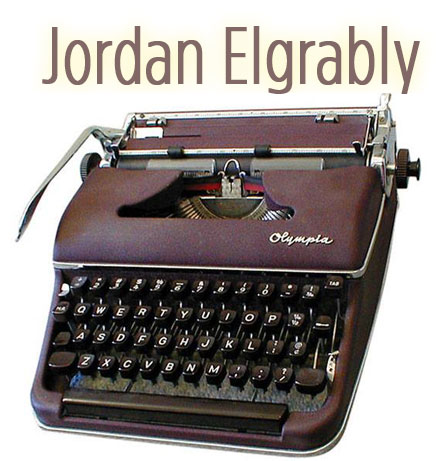Unraveling the pathos behind the anger at Schnabel's latest film.
23 March, 2011 | Al Jazeera | By Jordan Elgrably
Miral, currently in theaters, portrays the Israeli-Palestinian conflict from an entirely Palestinian perspective. It’s nothing earth-shattering (a brief filmography at the end of this article offers other films that do this far more effectively) except that it was made by a Jewish filmmaker. Several Jewish organizations and the Israeli government have seen fit to protest the film. They say it doesn’t tell both sides of the story. But that is precisely the point. When director Julian Schnabel—previously lauded for his lavish features Basquiat, Before Night Falls and The Diving Bell and the Butterfly—decided to make this film, based on the book by Palestinian journalist Rula Jebreal, his intention was to tell the story Rula tells in Miral.
Schnabel is an Academy-Award nominated director, and his film has brought “the conflict” into the mainstream. The fact that he happens to be Jewish while representing the Palestinian perspective inflames some in the Jewish community, who consider his film an act of betrayal.
I saw the film earlier this week in a special screening hosted by Javier Bardem, who starred in Before Night Falls and wanted to support Schnabel’s “brave film.” The director was there with his daughter Stella, who appears in the film, and with his new wife—Rula Jebreal. I couldn’t help but wonder what the Jewish community thinks when a Jew marries a Palestinian.
More to the point, why are some Jews afraid of Jews who embrace narratives other than those officially sanctioned in the Jewish and Israeli community? Why do such narratives when told by Jews—including books by Norman Finkelstein and Noam Chomsky, and Israeli revisionist historians such as Avi Shlaim, Ilan Pappé and Tom Segev—cause such ire? I’m one of these contrarian Jews. Why do I strive to see things not only from the Jewish perspective but the Arab one? Because my father’s family lived for centuries in an Arab country, Morocco, and because long ago I recognized that the Israeli-Palestinian conflict is about nothing else if not conflicting narratives.
Jews see 1948 as the year of Israel’s establishment and a glorious liberation from persecution with the benefit of an independent state for Jews who had no place to live in the Diaspora, or who wanted to join Zionists in their “return” to the Holy Land after nearly 2,000 years of Roman exile (see Shlomo Sand’s The Invention of the Jewish People for an alternative history that suggests the Romans never exiled Jews in 70 AD).
Palestinians experienced 1948 as the year of their defeat, a national catastrophe or Nakba. After centuries of dominance under the Ottoman Empire and then British occupation, Palestinians wanted their own freedom. In fact, the national Palestinian identity movement (as Rashid Khalidi explains in his book Palestinian Identity) was nearly the same age as the Zionist movement. Contrast that fact with the myths propagated for years by David Ben Gurion, Golda Meir and other early Zionists, who made a point of telling us that “there is no Palestinian people” and that Israel was “a land without a people for a people without a land.”
The Arab world began to wake from domination as the Ottoman Empire was crumbling in a renaissance movement known as al-Nahda. People in Palestine were active in their desire for independence from outside control and occupation. Little wonder that the 1947 U.N. Partition Agreement was almost universally rejected by the Arab world. Why would Palestinians want to lose half of Palestine after living for centuries under foreign rule—particularly when Jewish land ownership at the time was just a fraction of what the U.N. was awarding to the Jews (See <em>The Land Question in Palestine, 1917-1939</em>, by Kenneth W. Stein)? Why would Palestinian Arabs embrace Zionist Jews who were primarily European in origin and who trumpeted their culture as decidedly superior to Arab culture?
Filmography of films on Palestinians/Palestine
Roadmap to Apartheid, Eron Davidson, Ana Nogeira
Chronicle of a Disappearance, director Elia Suleiman
Life in Occupied Palestine, director Anna Baltzer
Occupation 101 - Voices of the Silenced Majority, directors Abdallah and Sufyan Omeish
Paradise Now, director Hany Abu-Assad
The Time That Remains, director Elia Suleiman
Tragedy in the Holy Land: The Second Uprising, director Denis Mueller

![ Director Julian Schnabel's 'Miral' has brought the Israel-Palestine conflict into the mainstream [GALLO/GETTY]](https://images.squarespace-cdn.com/content/v1/5575e4ace4b0c73f725bc5cd/1434134919778-EBMHPY8Y6FFNKE00F76S/julian-schnabel.jpg)

